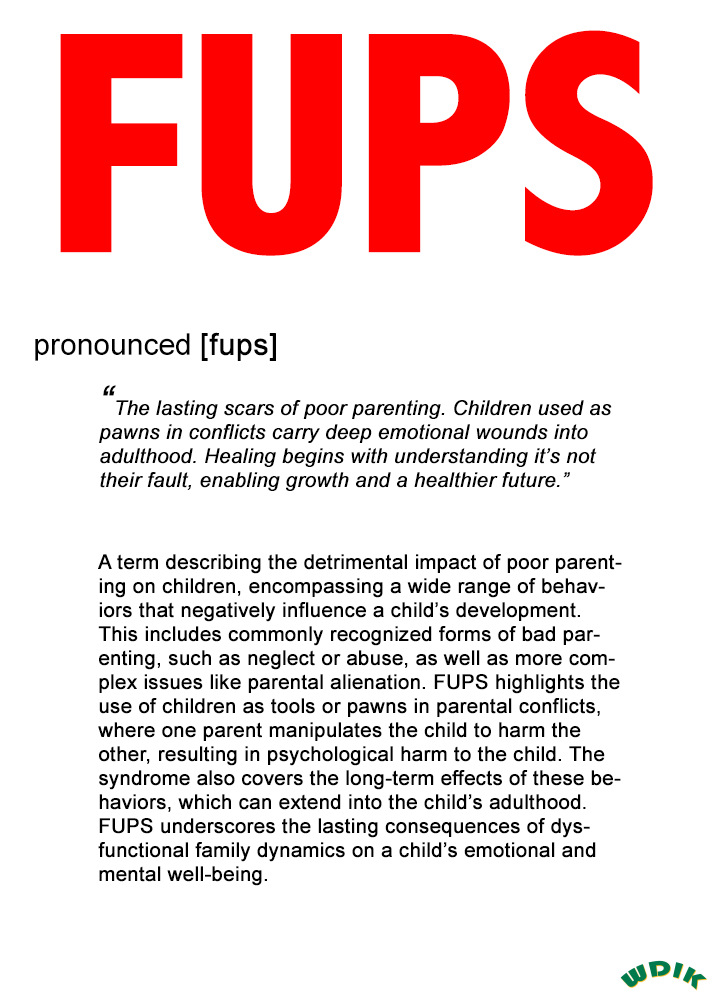FUPS (Fucked Up Parent Syndrome): A term describing the detrimental impact of poor parenting on children, encompassing a wide range of behaviors that negatively influence a child’s development. This includes commonly recognized forms of bad parenting, such as neglect or abuse, as well as more complex issues like parental alienation. FUPS highlights the use of children as tools or pawns in parental conflicts, where one parent manipulates the child to harm the other, resulting in psychological harm to the child. The syndrome also covers the long-term effects of these behaviors, which can extend into the child’s adulthood. FUPS underscores the lasting consequences of dysfunctional family dynamics on a child’s emotional and mental well-being.
End Result of FUPS: Children who grow up under the influence of FUPS often carry significant emotional scars into adulthood. Without guidance from someone close, who helps them understand that the negative experiences were not their fault, these individuals may internalize blame, leading to self-esteem issues and ongoing emotional turmoil. Recognizing and accepting that their feelings and experiences were shaped by external factors, not by any fault of their own, is crucial. This realization is the key to healing, allowing them to let go of misplaced guilt and move forward, fostering personal growth and a healthier outlook on life.
Broadly summed up as Cause & Affect;
• Neglect or Abuse: Physical, emotional, or psychological harm inflicted by parents.
• Parental Alienation: One parent manipulating a child against the other parent.
• Using Children as Pawns: Parents leveraging their children in conflicts to hurt the other parent.
• Dysfunctional Family Dynamics: Persistent conflicts, instability, and unhealthy relationships within the family.
• Lack of Emotional Support: Failure to provide necessary affection, understanding, and guidance to the child.
Effects of FUPS:
• Emotional Scars: Long-lasting psychological damage, leading to issues such as anxiety, depression, and low self-esteem.
• Internalised Blame: Children may wrongly believe they are at fault for the negative experiences and emotions they face.
• Impaired Relationships: Difficulty in forming and maintaining healthy relationships in adulthood.
• Ongoing Emotional Turmoil: Persistent feelings of guilt, shame, or unworthiness.
• Delayed Healing: Without external support or intervention, individuals may struggle to overcome these challenges, hindering personal growth and emotional recovery.

